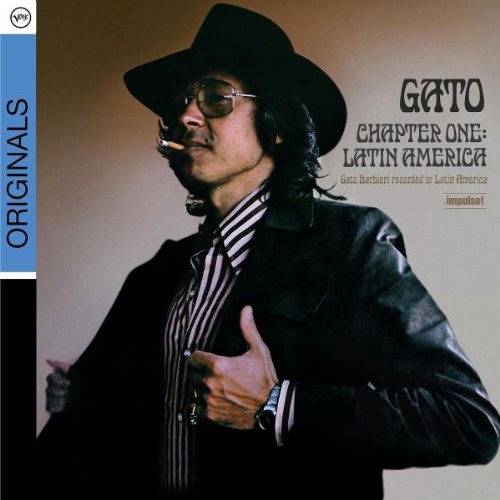Recent listening, current
Archived listening, 2013-2016
Showing posts with label harp. Show all posts
Showing posts with label harp. Show all posts
Friday, March 22, 2013
59. Gato Barbieri / Chapter One: Latin America (1973)
Early on, Barbieri did a series of albums focusing on Latin American music. Chapter One is the first and perhaps the most brilliantly conceived of the bunch, and it is also an album that brought him considerable acclaim outside of Argentina. "Encuentros" and "India" assemble a diverse assortment of instruments and musicians from South America. The proceedings are played on bombas, harps and the charango (yes! a charango). Barbieri's tenor presides over all, weaving in strands of melody and little riffs. At times, the group sounds as if they are imitating the sounds of the jungle, or myriad voices in a crowd. Listening to these pieces together is exhilirating time after time. The second side is comprised of a suite, and several short works. The former is a vast and sweeping work that I don't see having a successor in the Barbieri discography. It's noisy but sometimes gentle, roaring but not overwhelming, with great musicality. I see Chapter One as being of those records that shouldn't be played unless I unplug the phone and don't plan to leave the room until it's over. Aaaaah, that.
Thursday, March 7, 2013
53. Alice Coltrane / Journey in Satchidananda (1970)
Alice plays harp and piano, with help from two lineups of New Jazz practitioners (one band for the studio, and one recorded at the Village Vanguard). Coltrane's harp is wild and free, and the diverse instruments of her band make a colorful backdrop of shifting textures and rich tonalities. Pharoah Sanders' tenor and soprano saxes are played with an ear toward Middle Eastern or north African themes, but no on. If you've ever questioned or been curious about the influence of the former on the latter, this as close to a living, breathing side-by-side comparison that you're ever going to get. The liner says something about Coltrane's association with Swami Satchidananda and his doctrine of universal love. While we listen, we are invited to envision ourselves floating on his love for humanity. I'm not sure I prefer to do that over listening to how the musicians choose to stretch out and cooperatively interpret music that is entirely modal in form. I always hear something new, especially from McBee.
Subscribe to:
Posts (Atom)

